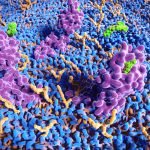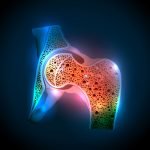Marriage May Protect Against Dementia
Node Smith, ND
Life Partners May Protect from the Development of Dementia
A recent study, published in the Journal of Neurology Neurosurgery and Psychiatry, suggests that having a life partner may actually serve a preventive role against the development of dementia.1 Specifically, the study found that long-standing “singles” and widows have an increased risk of developing the neurodegenerative disease. This does not indicate that being single is a health hazard, which it has been considered historically.
Possible Role of Marital Status in Dementia
The study looked at 15 separate studies and over 800,000 individuals from 4 continents. All the studies focused on the possible role of marital status in the development of dementia. The data suggested that those without a lifelong partner had a 42 percent higher chance of developing dementia compared with married people.
Bereavement Process May Contribute to Increased Stress Levels
An interesting detail of the study found that when the statistics were isolated to only those born after 1927, the risk decreased to 24 percent. The reason for this reduction of the risk over time is unclear.
Widowed individuals had an overall 20 percent higher chance of developing dementia than married individuals. Though, when education was taken into account, this association seemed to wane. The researchers theorized that the bereavement process may have something to do with this association – that bereavement could be increasing stress levels, which can certainly contribute to dysfunctional nerve signaling and effect cognitive ability.
Findings Based on Observational Studies
These findings are all based on observational studies, which means that a causal relationship cannot be drawn. In addition, some of the studies lacked data on the duration of widowhood, or divorce, which limits the definiteness of the conclusions.
Marriage Could Help Both Partners live Healthier Lifestyles
Despite the study’s limitations, the authors mention that marriage could help both partners live healthier lifestyles, such as supporting each other to be more active, eat better, drinking less alcohol, and smoking less. All of these are factors that have been seen to reduce dementia risk. Another possibility is that couples may have more social engagement compared with single individuals; another factor that has been linked to dementia risk.
Source:
Image Copyright: <a href=’https://www.123rf.com/profile_stockbroker’>stockbroker / 123RF Stock Photo</a>
 Node Smith, ND, is a naturopathic physician in Portland, OR and associate editor for NDNR. He has been instrumental in maintaining a firm connection to the philosophy and heritage of naturopathic medicine among the next generation of docs. He helped found the first multi-generational experiential retreat, which brings elders, alumni, and students together for a weekend camp-out where naturopathic medicine and medical philosophy are experienced in nature. Four years ago he helped found the non-profit, Association for Naturopathic ReVitalization (ANR), for which he serves as the board chairman. ANR has a mission to inspire health practitioners to embody the naturopathic principles through experiential education. Node also has a firm belief that the next era of naturopathic medicine will see a resurgence of in-patient facilities which use fasting, earthing, hydrotherapy and homeopathy to bring people back from chronic diseases of modern living; he is involved in numerous conversations and projects to bring about this vision.
Node Smith, ND, is a naturopathic physician in Portland, OR and associate editor for NDNR. He has been instrumental in maintaining a firm connection to the philosophy and heritage of naturopathic medicine among the next generation of docs. He helped found the first multi-generational experiential retreat, which brings elders, alumni, and students together for a weekend camp-out where naturopathic medicine and medical philosophy are experienced in nature. Four years ago he helped found the non-profit, Association for Naturopathic ReVitalization (ANR), for which he serves as the board chairman. ANR has a mission to inspire health practitioners to embody the naturopathic principles through experiential education. Node also has a firm belief that the next era of naturopathic medicine will see a resurgence of in-patient facilities which use fasting, earthing, hydrotherapy and homeopathy to bring people back from chronic diseases of modern living; he is involved in numerous conversations and projects to bring about this vision.









